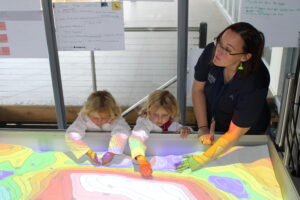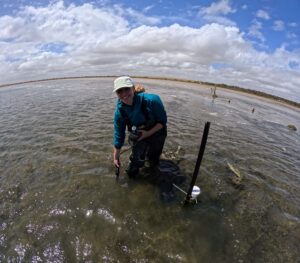On 9 August 2021, the Intergovernmental Panel on Climate Change (IPCC) released its latest report on climate change. The observed and projected changes to the global climate outlined in the report have significant implications for water management across the world. The report is a timely reminder of the importance for the Goyder Institute to build upon its previous projects to continue to deliver novel and interdisciplinary research to inform water management in a changing climate in South Australia and beyond.
The IPCC report, Climate Change 2021: The Physical Science Basis, was approved by the 195 government members of the IPCC. Key findings include:
- Human activities are responsible for approximately 1.1°C of warming since 1850-1900.
- Unless there are immediate, rapid, and large-scale reductions in greenhouse gas emissions, limiting global warming to 1.5°C and even 2°C in the next decades will not be possible.
- Climate change is affecting every region on Earth in multiple ways and the changes experienced will increase with additional warming.
- For 1.5°C of global warming there will be increasing heatwaves, warmer seasons and shorter cold seasons.
- At 2°C of global warming, heat extremes would more often reach critical tolerance thresholds for agriculture and health.
With specific regard to water, the report states that continued global warming is projected to further intensify the global water cycle, including its variability and the severity of wet and dry events (high confidence*). Globally, precipitation and surface water flows are projected to become more variable over most land regions within seasons (high confidence) and from year to year (medium confidence).
Across the whole of Australia, land areas have warmed by around 1.4°C (very high confidence); and heat extremes have increased, cold extremes have decreased and these trends are projected to continue (high confidence). Relative sea level rose at a rate higher than the global average and is projected (high confidence) to continue in the 21st Century and beyond, contributing to increased coastal flooding and shoreline retreat along sandy coasts. Heavy rainfall and floods are projected to increase (medium confidence). Changes in heatwaves, floods and droughts would be more widespread at 2°C compared to 1.5°C global warming, and even more widespread and/or pronounced for higher warming levels.
Under its regional analyses, the report states that for southern Australia there has been observed decreased rainfall and an increase in the frequency of agricultural and ecological droughts (medium confidence). It is projected that southern Australia will see a reduction in mean rainfall (particularly in the cool season), increase in aridity and increase in the frequency of meteorological, agricultural and ecological droughts (medium confidence).
These analyses align with the findings of the Goyder Institute’s Climate Ready project and highlights the importance of achieving the South Australian Government Climate Action Plan 2021-2025, a key objective of which is to ensure secure, climate resilient regional and urban water supplies. In our February eNews, we outlined how previous projects delivered by the Goyder Institute can assist in the delivery of the Climate Action Plan 2021-2025 and also the supporting Climate Change Science and Knowledge Plan.
Recognising the significant impacts of climate change across all sectors, Climate Resilience is an overarching priority impact area of the Goyder Institute Strategic Plan 2020-23, with the aim to develop climate resilient solutions for the four other priority impact areas: Water for Cities and People; Water for the Environment; Water for Agriculture; and Water for Mining. The water-related climate projections identified in the new IPCC report highlight the urgent need to build resilience in water management to future change.
Current research being undertaken by the Goyder Institute to understand the impacts of, and developing strategies for building resilience to climate-induced change includes the Healthy Coorong Healthy Basin Trials and Investigations Climate Adaptation Project, which will develop a climate adaptation plan for the Coorong. Climate adaptation will continue to be the focus on future opportunities for the Institute, including the rebid of the ONE Basin CRC, which is a proposed collaboration to develop policy, technical and financial solutions to support and reduce exposure to climate, water and environmental threats in the Murray-Darling Basin.
If you wish to discuss potential future climate and water related collaborative opportunities with the Goyder Institute, please contact the Institute Director, Dr Kane Aldridge.
* Each finding is stated with a level of confidence expressed using five qualifiers: very low, low, medium, high and very high.


